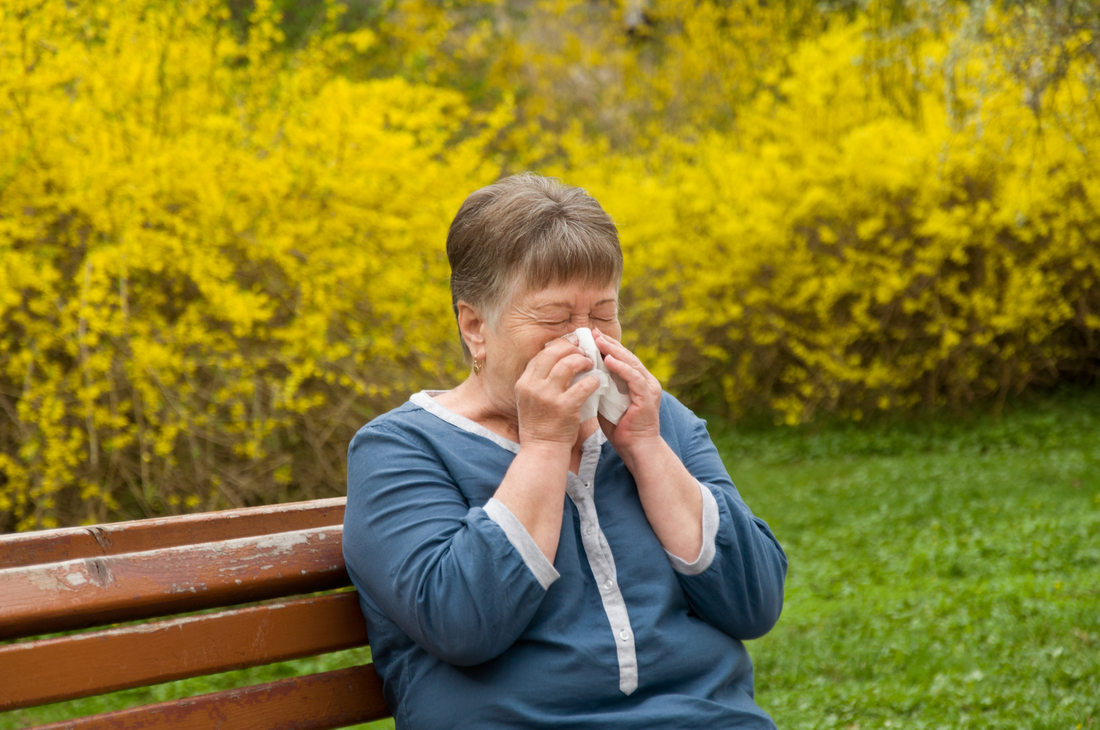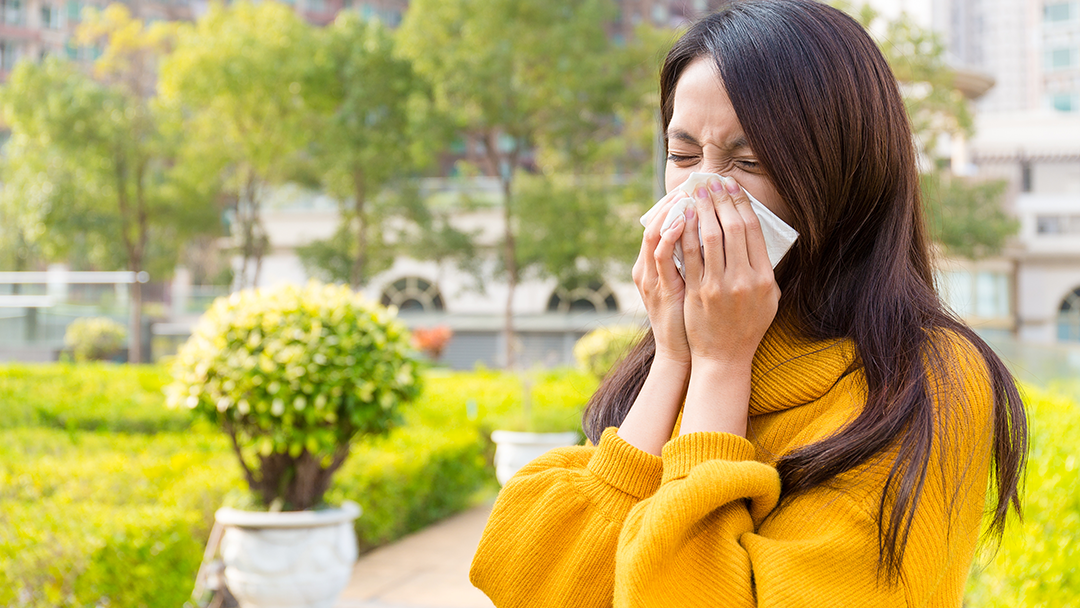Currently, a seasonal allergy is a very common disease in everyday life. Seasonal allergies are actually caused by changes in hot and cold temperatures or humidity that affect the growth of mold allergens or changes in pollen levels in the air. So what signs you have seasonal allergies? How to treat them? This article will answer these questions thoroughly.
Related topic:

Signs you have seasonal allergies: Runny nose
Signs You Have Seasonal Allergies
The symptoms of seasonal allergies range from mild to severe. The most common ones include:
Sneezing
- Runny or stuffy nose;
- Watery and itchy eyes;
- Itchy sinuses, throat, or ear canal;
- Ear obstruction;
- Postnasal discharge.
CoughingThese signs you have seasonal allergies often come with itchy, watery, and/or red eyes, which is called allergic conjunctivitis. Those with wheezing and shortness of breath in addition to those symptoms above might have allergies triggering asthma.
Some other less common symptoms may include:
- Headache
- Shortness of breath
- Wheezing
Researchers have also shown an association between people with hay fever and asthma. Those signs apart, you can also experience other symptoms.

Typical Signs You Have Seasonal Allergies
Why do we have seasonal allergies?
Disorders of the immune system in the body are the main cause of seasonal allergies. Your immune system will produce a series of antibodies, chemicals to fight against stimulating factors from the external environment, causing harm to the body. The mechanism of histamine production, which is also an important activity in the immune system, lead to signs you have seasonal allergies.
When do you need to see a doctor?
Early diagnosis and treatment can prevent allergic symptoms from getting worse and, so see your doctor for the most appropriate advice and treatments.
Treatment
There are many ways to treat seasonal allergies, depending on how severe the signs you have seasonal allergies. The most important part of treatment is knowing which allergens are active. Some limit exposure to allergens that bother them to get relief.

Common signs you have seasonal allergies
Another way to deal with seasonal allergies is to keep the windows closed. You can also use air conditioning if possible, and stay indoors when pollen/mold/weed counts are high. It’s also important for those with seasonal allergies to wash their hands, shower, and change clothing after playing outside.
If reducing exposure doesn’t work, think about medications to ease allergy symptoms, which include decongestants and nasal spray steroids. If symptoms can’t be controlled with medicines, go to an allergist or immunologist for allergy shots.
Conclusion
Signs you have seasonal allergies are easy to recognize, but sometimes they can be misunderstood with cold head or other kinds of viral diseases. If the symptom persists, you should go to the doctor or an allergist or immunologist for evaluation for allergy shots. https://goweatherforecast.com/
Nhận xét
Đăng nhận xét